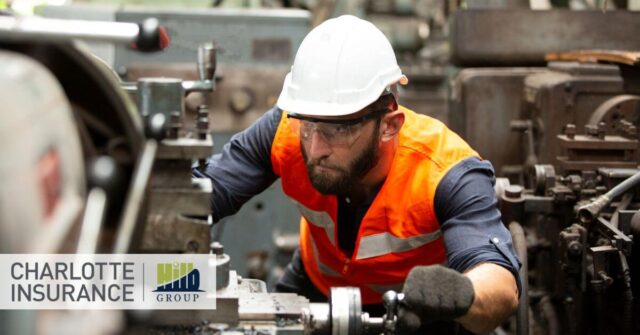Manufacturing businesses face a wide variety of risks on a daily basis. There’s the potential for goods to become damaged while sitting in a warehouse awaiting shipping. There’s the chance that a batch of the manufactured items might be defective in some way, leading to consumer issues. There are potential problems with third-party vendors, the possibility of supply chain problems, and even the risk of getting hacked and having your cybersecurity compromised. The list goes on and on.
So, with so many potential problems, it makes sense to consider putting a number of risk management strategies in place. But which strategies are tried-and-true? Let’s take a look.
Determining Your Risk
What constitutes something as a “risk?” How does your business define it? What are the many issues that your manufacturing business may confront? In order to find ways to manage your business’s risk, you first need to determine what those potential risks are. This will provide you with a blueprint that you can use in order to protect your business.
Start by sitting down with your board of directors or other company leaders and going over which risks the business faces. It helps if you first define what the word means to your business, so that you can find potential issues that fit into that category. From there, you can compile a list of risks and then devise a plan on how to manage them when they occur. In most cases, this involves identifying and putting the right insurance policies into place.
Insurance for Manufacturing Companies
The best way for manufacturing companies to protect themselves is by having some protective insurance policies that cover many of their risks. Some of the most important policies that these companies can have include:
- Cybersecurity Insurance – One of the newest options out there, these insurance policies kick in when a hacker has managed to get ahold of company data. The policy can cover everything from the costs of getting a new secure system in place, as well as any potential solutions for the customers who’ve had their information stolen.
- Equipment Breakdown Insurance – Manufacturers rely heavily on their equipment. Whether one component of the line breaks down or the whole thing suffers from a catastrophic failure, it’s crucial to have the right insurance policy in place to mitigate the risks. This is where equipment breakdown insurance comes in, as it can cover the costs of repairs and more.
- General Liability Insurance – It’s always a promising idea to have a general liability insurance policy, as well as an umbrella liability policy, just in case. This type of insurance can cover everything from legal fees and more, should something happen that the company is found liable for.
- Property in Transit Insurance – Manufacturing companies need to move their products to the customer’s locations on a regular basis. If something should go wrong while going from point A to point B, property in transit insurance might just cover it.
Have Questions? Contact Charlotte Insurance
Want to learn more about risk management strategies for manufacturing companies? Contact Charlotte Insurance. Our agents can explore and explain all available options and put together the insurance coverage plan your business needs.

